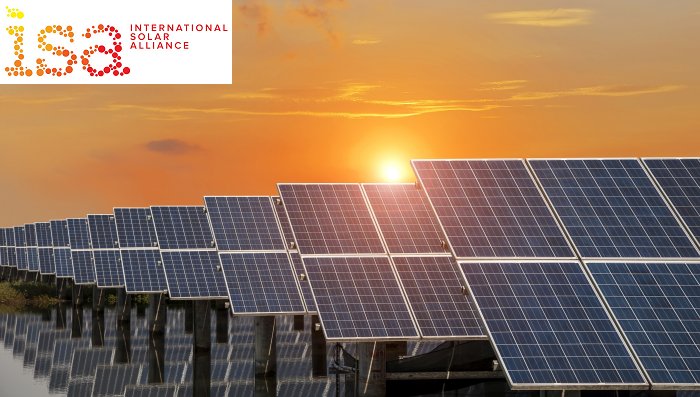The International Solar Alliance (ISA) was unveiled by Prime Minister Narendra Modi and then French President Francois Hollande at the U.N. Climate  Change Conference in Paris on November 30, 2015. The idea was to form a coalition of solar resource-rich countries to collaborate for their energy requirements through a common approach. Towards this, the ISA has set a target of 1 TW of solar energy by 2030, which current French President Emmanuel Macron said would require $1 trillion to achieve. The founding ceremony was held at New Delhi on 11th March. The ISA has 121 member countries which are located between the Tropics of Cancer and Capricorn as this is the region worldwide with a surplus of bright sunlight for most of the year. So far, however, only 56 countries have signed the ISA Framework Agreement. These include Australia, Bangladesh, Benin, Brazil, Burkina Faso, Cabo Verde, Cambodia, Chad, Chile, Comoros, Costa Rica, Cote d'Ivoire, Cuba, Djibouti, Dominican, Republic, DR Congo, Equatorial Guinea, Ethiopia, Fiji, France, Gambia, Gabon, Ghana, Guinea, Guinea-Bissau, Guyana, India, Kiribati, Liberia, Madagascar, Malawi, Mali, Mauritius, Mozambique, Nauru, Niger, Nigeria, Peru, Rwanda, Sao Tome, Senegal, Seychelles, Somalia, South Sudan, Sri Lanka, Sudan, Suriname, Tanzania, Togo, Tonga, Tuvalu, UAE, Uganda, Vanuatu, Venezuela and Yemen. Apart from being a founding-member, India plays a significant role in the alliance in terms of being a host as well as a major contributor to the achievement of the target. The ISA is the first international body that will have a secretariat in India. India, with a target to produce 100 GW of solar energy by 2022, would account for a tenth of ISA’s goal. “India will produce 175 GW electricity from renewable sources by 2022 and 100 GW will be from solar energy,” Mr. Modi said, addressing the ISA. “Distribution of 28 crore LED bulbs in three years has saved $2 billion and 4 GW of electricity. India will also provide 500 training slots for ISA member-countries and start a solar tech mission to lead R&D.”
Change Conference in Paris on November 30, 2015. The idea was to form a coalition of solar resource-rich countries to collaborate for their energy requirements through a common approach. Towards this, the ISA has set a target of 1 TW of solar energy by 2030, which current French President Emmanuel Macron said would require $1 trillion to achieve. The founding ceremony was held at New Delhi on 11th March. The ISA has 121 member countries which are located between the Tropics of Cancer and Capricorn as this is the region worldwide with a surplus of bright sunlight for most of the year. So far, however, only 56 countries have signed the ISA Framework Agreement. These include Australia, Bangladesh, Benin, Brazil, Burkina Faso, Cabo Verde, Cambodia, Chad, Chile, Comoros, Costa Rica, Cote d'Ivoire, Cuba, Djibouti, Dominican, Republic, DR Congo, Equatorial Guinea, Ethiopia, Fiji, France, Gambia, Gabon, Ghana, Guinea, Guinea-Bissau, Guyana, India, Kiribati, Liberia, Madagascar, Malawi, Mali, Mauritius, Mozambique, Nauru, Niger, Nigeria, Peru, Rwanda, Sao Tome, Senegal, Seychelles, Somalia, South Sudan, Sri Lanka, Sudan, Suriname, Tanzania, Togo, Tonga, Tuvalu, UAE, Uganda, Vanuatu, Venezuela and Yemen. Apart from being a founding-member, India plays a significant role in the alliance in terms of being a host as well as a major contributor to the achievement of the target. The ISA is the first international body that will have a secretariat in India. India, with a target to produce 100 GW of solar energy by 2022, would account for a tenth of ISA’s goal. “India will produce 175 GW electricity from renewable sources by 2022 and 100 GW will be from solar energy,” Mr. Modi said, addressing the ISA. “Distribution of 28 crore LED bulbs in three years has saved $2 billion and 4 GW of electricity. India will also provide 500 training slots for ISA member-countries and start a solar tech mission to lead R&D.”